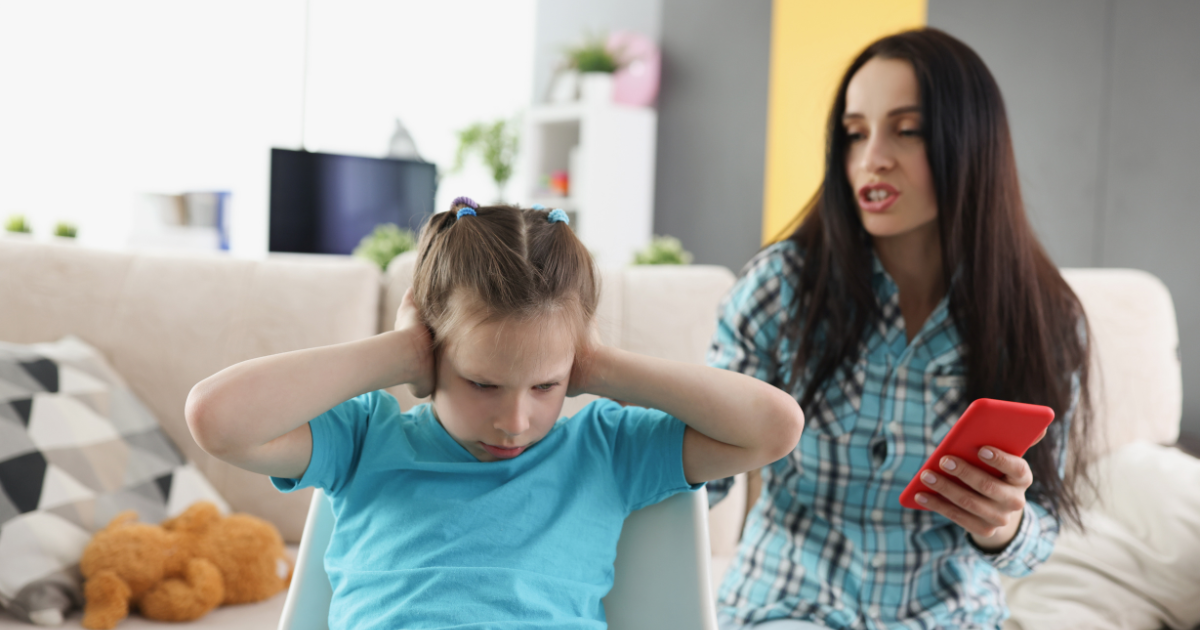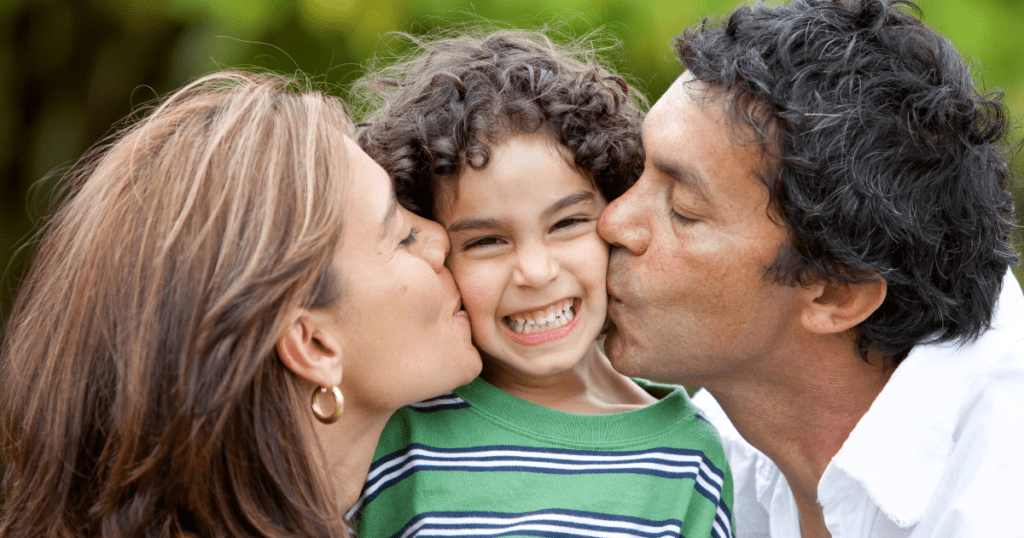The impact of infidelity on children can have short-term to long-term devastating effects. When parents divorce after infidelity, children may experience a range of emotions, including sadness, anger, confusion, and guilt. They may also have difficulty trusting adults and forming healthy relationships.
In this blog post, we’ll explore the often-overlooked subject of how infidelity in a marriage can affect children and how parents can navigate co-parenting after a divorce.
It’s a journey filled with its own set of ups and downs, but understanding the potential effects on children and learning how to co-parent effectively can make a world of difference in their lives.
Let’s delve into this important discussion together.
Key Takeaways
- Infidelity in marriage can have a massive impact on children, causing emotional and psychological consequences such as feelings of betrayal, anger, and self-blame.
- The parent-child relationship is often strained due to the conflicts and changes associated with infidelity and divorce, leading to feelings of abandonment and the need to pick sides.
- Co-parenting after divorce is crucial for the well-being of children, requiring effective communication, conflict resolution, consistency, and flexibility from both parents.
- Encouraging positive parent-child relationships and avoiding negative remarks or actions is essential for strengthening the bond between children and their non-custodial parent.
- Seeking professional support through therapy or counseling can help parents and children navigate the complexities of divorce, manage emotions, and develop healthy co-parenting strategies.
The Emotional and Psychological Impact of Infidelity on Children
Infidelity in a marriage can really affect kids emotionally and mentally. How much it affects them can depend on their age, how they usually act, and how their parents handle the situation. Here are some common feelings and thoughts that kids might have when a parent cheats:
1. Feelings of Betrayal and Confusion:
Infidelity can make children feel like someone they trusted has done something very wrong. It’s like a big secret that’s been revealed. This can be very confusing for them because they might wonder if they can trust their parents or anyone else in the future. It’s like a puzzle with missing pieces, and they don’t know how to put it all together.
2. Anger and Resentment:
When a parent cheats, kids can get really mad and upset. They might feel like their parent let them down, and this can lead to strong anger and resentment. It’s like a volcano of emotions erupting inside them. This anger can be hard to handle, and it can last for a long time, affecting their relationship with the parent who cheated.
3. Low Self-Esteem:
Kids might start to blame themselves for the cheating, even though it’s not their fault. They might think they did something wrong or that they’re not good enough. It’s like a cloud of self-doubt that hangs over them. This low self-esteem can stick with them, making it hard to feel good about themselves.
4. Fear of Abandonment:
Infidelity can make kids really scared of being left alone. They worry that the parent who cheated might leave, and this can make them feel unsafe. It’s like a constant fear of being abandoned, and it can affect their relationships with both parents.
5. Anxiety and Depression:
All these emotions and confusion can make kids very anxious and sad. It’s like carrying a heavy backpack full of worries and sadness. They may feel like they can’t escape these feelings, and it can affect their everyday life, like school and friendships.
Understanding these emotional challenges is important for parents and caregivers. It’s essential to offer support, reassurance, and a safe space for children to express their feelings and ask questions as they navigate the complex emotions that infidelity can bring into their lives.
The Impact of Infidelity in Marriage on Parent-Child Relationships

Infidelity in marriage can change the relationship between parents and their children in significant ways. Let’s explore how it can affect the parent-child bond:
- Trust Struggles: When a parent cheats, children may find it hard to trust that parent. It’s like a wall going up between them, making it tough to believe what the parent says or promises.
- Confusion and Questions: Kids might have lots of questions about what happened. They may not understand why a parent would cheat. This confusion can create distance between them and the parent.
- Emotional Distance: Infidelity can lead to emotional distance between parents and children. The parent who cheated may be preoccupied with their own feelings, making it difficult to connect with their children.
- Blaming Themselves: Children may mistakenly think they caused the infidelity. They might believe that if they were better or different, it wouldn’t have happened. This self-blame can strain the parent-child relationship.
- Seeking Comfort Elsewhere: Sometimes, children may seek comfort from the non-cheating parent or other family members. They may feel safer talking to someone else because they fear upsetting the parent who cheated.
- Changes in Household Dynamics: The discovery of infidelity can lead to changes in the household. Arguments, tension, or one parent moving out can disrupt the family routine, affecting the parent-child relationship.
- Resentment and Anger: Children may feel angry and resentful toward the parent who cheated. These feelings can lead to conflicts and further strain the relationship.
- Long-Term Impact: The impact of infidelity can linger over time, potentially affecting the parent-child relationship even after the initial shock has passed.
Co-Parenting After Divorce and Infidelity
Co-parenting after divorce is essential for the well-being and growth of children whose parents are no longer together. Kids know their home has changed, but they need love, reassurance, and stability.
So, what’s co-parenting after divorce?
It’s when parents who aren’t married anymore work together to raise their children. Co-parenting, especially after an infidelity-caused divorce, can be tough.
Both parents need to be determined, patient, and consistent to make it work. By following these steps, you’ll learn how to co-parent your children successfully after divorce.
1. Prioritize Communication and Conflict Resolution
Open and respectful communication is essential for effective co-parenting. You and your ex-partner need to set up communication channels to discuss important matters concerning your children. This may involve regular meetings, phone calls, emails, or texts.
Conflict resolution is equally important. So, you and your ex-partner should strive to resolve conflicts constructively and respectfully, focusing on the best interests of your children.
Mediation or therapy can also help you navigate difficult conversations and find mutually agreeable solutions.
2. Maintain Consistency in Your Routines
Maintaining consistency in rules, expectations, and routines across both households gives your children stability and a sense of security.
To co-parent successfully, you and your ex-partner need to establish shared guidelines and agreements on important aspects, like discipline, homework, bedtime routines, screen time, and mealtime.
Consistency in these areas helps children feel a sense of predictability and structure in their lives.
3. Encourage Positive Parent-Child Relationships

Actively support and encourage your children’s relationships with your ex-partner—ideally, your ex-partner should do the same.
It’s important to avoid negative remarks or actions that could hurt your children’s bond with their other parent.
Encouraging regular and meaningful contact, honoring visitation schedules, and facilitating quality time between your children and ex-partner will strengthen their bond with their other parent.
4. Be Flexible and Cooperate with the Other Parent
Co-parents need to be flexible and willing to accommodate each other’s schedules and commitments. This means being open to adjusting visitation arrangements when necessary, cooperating on shared responsibilities, and being willing to compromise for the children’s well-being.
Flexibility and cooperation also extend to special occasions, holidays, and important events, where both parents should prioritize the children’s needs and strive to create positive and inclusive experiences.
Also, respecting each other’s boundaries and not involving children in your conflicts is important. So, you and your ex-partner should shield your children from any negative aspects of your divorce and quarrels.
When you do this, you create a safe and supportive space for your children, which will reduce their stress and ensure their emotional well-being.
5. Seek Professional Support for Divorce After Infidelity
Navigating the complexities of co-parenting after divorce can be challenging.
But that’s why it helps to seek professional support, like therapy or counseling.
Professional support can be very helpful for both parents and children.
Therapists or family counselors can offer you and your ex-partner guidance, tools, and strategies to improve communication, manage emotions, and foster healthy relationships.
They can also help you address any underlying issues, cope with the emotional impact of divorce, and develop effective co-parenting strategies.
Conclusion
If you wish to successfully co-parent after divorce, you need to prioritize your children’s well-being.
You and your partner must set aside your desires, interests, and conflicts to sustain the healthy growth of your children.
This will take open communication, conflict resolution skills, and consistency, which can be hard at first.
But by prioritizing cooperation, flexibility, and seeking professional guidance, you can create a supportive and stable co-parenting environment that promotes the healthy development and happiness of your children.
Infidelity in marriage and divorce takes a huge toll on children, but with the right approach, you can reduce the emotional impact.
We hope that with the insightful tips in this guide, you and your ex-partner can create a supportive and stable environment for your children to navigate their challenges and build a resilient future.
Frequently Asked Questions
What is the impact of infidelity on children emotionally?
Infidelity in a marriage can really affect kids emotionally. Here’s how it can make them feel:
- Confusion: Kids can get confused about why a parent cheated. They might not understand why it happened, and that can be very unsettling for them.
- Feeling Betrayed: Seeing a parent cheat can make kids feel like that parent betrayed their trust. It hurts and disappoints them a lot.
- Getting Angry: Kids might feel really mad at the parent who cheated for breaking their trust and causing problems in the family.
- Sadness and Grief: Sometimes, infidelity leads to the family breaking up or changing, which can make kids very sad and make them feel like they’re losing something important.
- Feeling Not Good Enough: Some kids might think that the cheating happened because of something they did or because they’re not good enough. This can make them feel bad about themselves.
- Worry and Anxiety: All the stress and uncertainty from infidelity can make kids very anxious. They worry about their family and how they feel.
What are the challenges children face in the aftermath of infidelity and divorce?
Children can have a tough time when their parents go through infidelity and divorce. Here are some common challenges they might face:
- Feeling Upset: Kids can feel really sad, mad, and confused because of what’s happening with their parents. It’s a lot of different emotions all at once.
- Having Trouble Trusting: After seeing their parents’ problems, kids might find it hard to trust people, even their own parents, in the future.
- Dealing with New Homes: Sometimes, they have to go to different homes or live in a new place, and that can be confusing and tough to get used to.
- Missing Stability: Divorce can make things feel unstable, and kids might miss how things used to be when their family was together.
- Seeing Parents Argue: If their parents keep arguing, it can make kids feel anxious and worried.
- Problems in School and Behavior: All the stress from divorce can make it hard for kids to do well in school, and they might start acting out more.
How can parents successfully co-parent after infidelity and divorce?
Here are some tips:
- Put your children first. Remember that your children are the most important people in this situation. Make sure that all of your decisions are in their best interests.
- Be civil and respectful to your ex-partner. Even if you are angry or hurt, it is important to be civil and respectful to your ex-partner. This will help to create a positive environment for your children.
- Communicate effectively. Communicate openly and honestly with your ex-partner about your children’s needs and schedules. This will help to avoid conflict and make co-parenting easier.
- Be consistent and reliable. Stick to your parenting agreements and schedules as much as possible. This will help to create a sense of stability and predictability for your children.
- Avoid talking negatively about your ex-partner in front of your children. This can damage your children’s relationship with their other parent.
- Seek professional help if needed. A therapist or counselor can help you to co-parent effectively and to heal from the trauma of infidelity and divorce.



